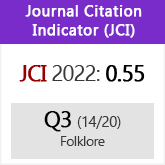Tiempo e historia en el Islam
DOI:
https://doi.org/10.3989/rdtp.2004.v59.i1.141Keywords:
Hegira, Lunar Calendar, Linear Time, Cyclical Time, Personal Time, Historical Records, Political Turn, Islamic MessianismAbstract
As in other civilizations, time in Islam is one of the organizing principies of its concepts, representations and identity. The very emergence of this civilization, in 7thcentury Arabia, resulted in the establishment of an era, a calendar and an historical consciousness of its own. Within this specificity, there are different ways of understanding, living and feeling time and history: from the personal, subjective perspective to that of philosophers and astronomers to time in the organization of daily activities, and from history as a succession of reigns and dynasties. These different concepts and vantage points reflect the richness and complexity of a civilization that is currently spread across all five continents and more than 1400 years old since Hegira. Thus, for the "orthodox" Sunnites time is linear, whereas for the Shiites it is cyclical. Yet even the rationalization of history as a linear occurring is not free from a contested meaning relative to the political circumstances of the present, as a semantic analysis of the term dawla indicates.
Downloads
Download data is not yet available.
Downloads
Published
2004-06-30
How to Cite
Viguera Molins, M. J. (2004). Tiempo e historia en el Islam. Disparidades. Revista De Antropología, 59(1), 57–81. https://doi.org/10.3989/rdtp.2004.v59.i1.141
Issue
Section
Articles
License
Copyright (c) 2004 Consejo Superior de Investigaciones Científicas (CSIC)

This work is licensed under a Creative Commons Attribution 4.0 International License.
© CSIC. Manuscripts published in both the printed and online versions of this Journal are the property of Consejo Superior de Investigaciones Científicas, and quoting this source is a requirement for any partial or full reproduction.All contents of this electronic edition, except where otherwise noted, are distributed under a “Creative Commons Attribution 4.0 International” (CC BY 4.0) License. You may read here the basic information and the legal text of the license. The indication of the CC BY 4.0 License must be expressly stated in this way when necessary.
Self-archiving in repositories, personal webpages or similar, of any version other than the published by the Editor, is not allowed.















